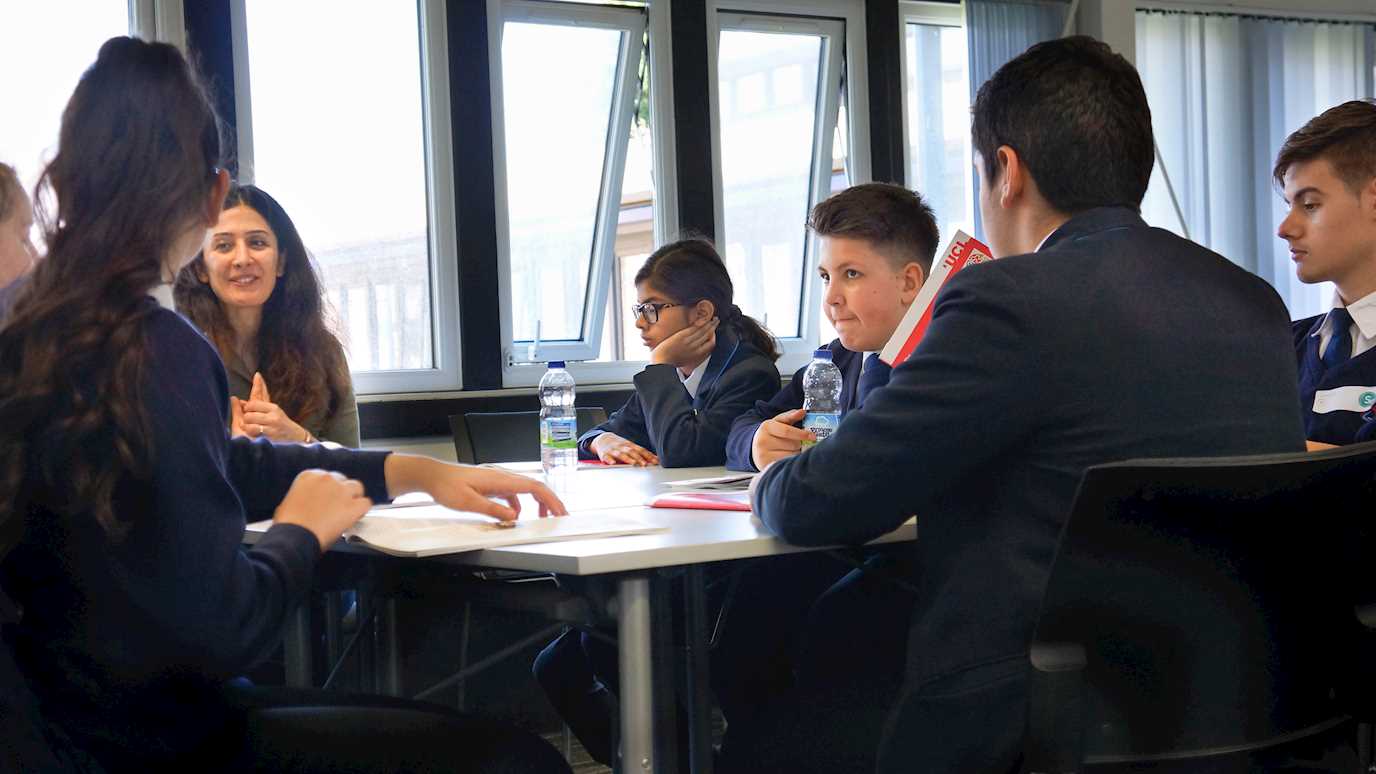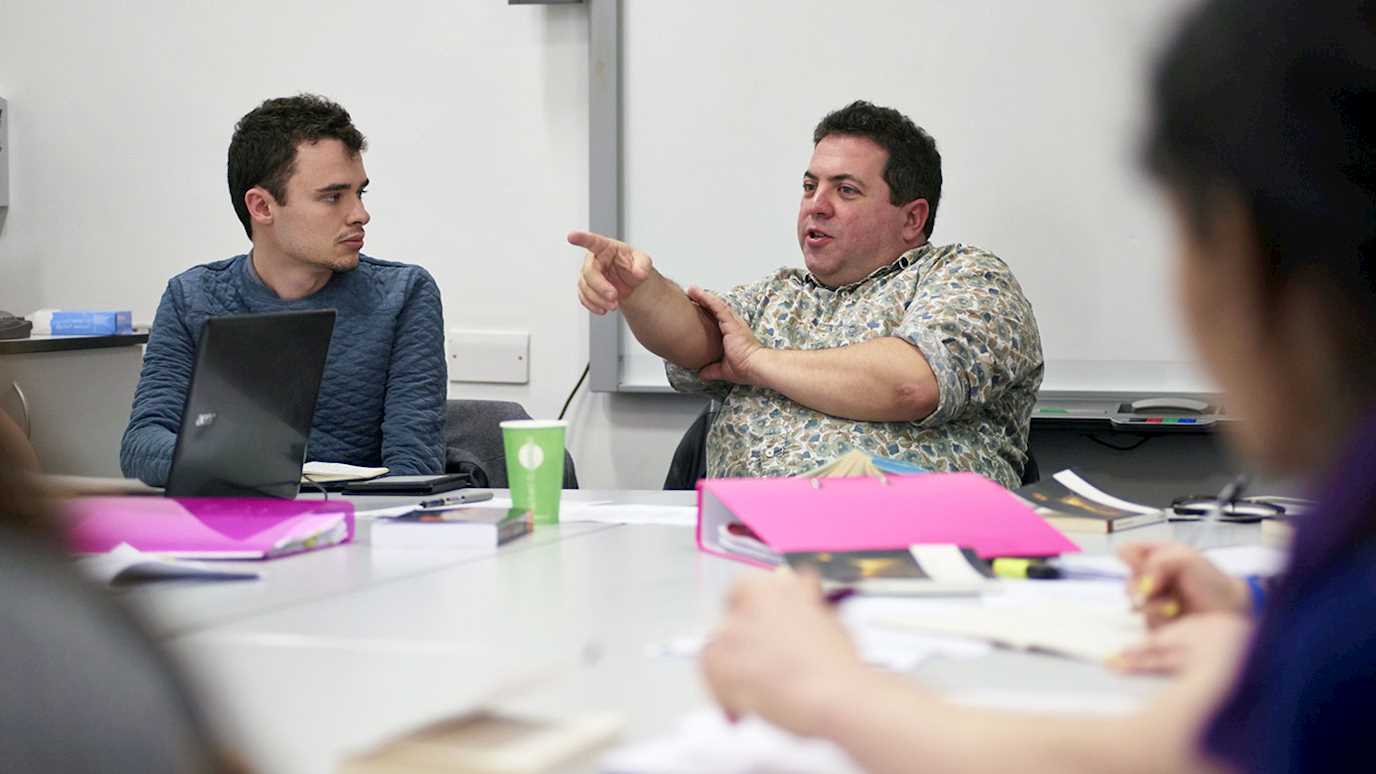Dr Doug Cowie on teaching creative writing
Dr Doug Cowie gives 5 tips for Teaching Creative Writings through reading and experience.
Key points
Video 1
- Use published texts to read together in class as the foundation/basis for every topic
- Use in-class writing exercises that can be discussed after their completion
- Get students to read their work aloud
- Link in-class work to outside assignments, producing a sense of creative development
- Student generated work is absolutely vital, both for the writing processes and the subject as a whole. Give the students totally ownership of their own creative work.
Video 2
- Reading: It's important to learn to read well, and that means exposing students to a wide variety of literature
- Writing from reading: avoid the temptation of 'writing in the style of' an author, and literally copy out their writing instead. Copying something out word for word can teach a student what it feels like to write in a certain way.
- Experience: Move away from 'write what you know'. There are many types of experience, not just the autobiographical experience, but the key thing is how to use experience. One exercise is to get students to write about a small insignificant thing that happened and think about what might be interesting about it for someone else
- Writing (Again). Writing from experience. Once students have learnt about developing a style, and what it means to write about an experience keeping in mind how it might be interesting to others, it's time to think about beginnings, middle and ends, especially beginnings and ends. How do you start telling an experience, how do you end telling that experience?
- Process: Writing is always a process. These questions you ask at the beginning are part of the process, and hard as it may be, you will need to keep asking those questions throughout.
Recommended textbook
- Paul Magrs and Julia Bell, eds. The Creative Writing Coursebook (London: Macmillan, 2001).
Further reading
- Andrew Cowan, The Art of Writing Fiction (London: Longman, 2011).
The Art of Writing Fiction guides the reader through the processes of creative writing from journal-keeping to editing, offering techniques for stimulating creativity and making language vivid. Readers will master key aspects of fiction such as structure, character, voice and setting. - Heather Beck, ed. Teaching Creative Writing (Basingstoke: Palgrave Macmillan, 2012).
Creative Writing is now taught in some form or other at most institutions of Higher Education in the UK and USA as well as in the rest of the world, and there has been a long ongoing dialogue between countries as this process has unfolded. This important book uses contributions from twenty-four academics in the UK and USA to give a comprehensive account of how Creative Writing is taught in Higher Education. Contributors examine a diverse range of topics, such as histories of Creative Writing, Creative Writing workshops, reflective activities, critical theory, Creative Writing at Undergraduate and Postgraduate levels, assessment, and information technology. The collection includes both newer and more established practitioners within the field, with all of these voices coming together to contribute to the intellectual infrastructure of Creative Writing as an emerging discipline within the context of Higher Education. - Robert Eaglestone ‘Creative Writing and Critical Rewriting’ in Doing English: A Guide for Literature Students (Abingdon: Routledge, 2009) pp.109 - 115.
Aimed at students of English Literature in their final year of secondary education or beginning degrees, this immensely readable book is the ideal introduction to studying English Literature.
Doing English presents the ideas and debates that shape how we ‘do’ English today, covering arguments about the value of literature, the canon, Shakespeare, theory, politics and the future of the subject. - Richard Bausch and R.V. Cassill, eds. The Norton Anthology of Short Fiction (New York: W. W. Norton & Company, 2006).
One of the most celebrated writers and teachers of fiction, Richard Bausch, pairs his insight and inspiration with Norton’s trusted editorial standards to deliver the finest teaching anthology available.
The Norton Anthology of Short Fiction also offers readers more opportunities to dig deeper into the works of particular authors, with 22 authors represented by multiple selections in the Full Edition. - George Orwell, ‘Why I write’ on Orwell.ru (24.09.2015) <http://orwell.ru/library/essays/wiw/english/e_wiw>
Essay focusing on Orwell's childhood, writing on the topic of his absent father, as well as his feelings of isolation from his school peers. He explains how these experiences informed his writing, stating that his early loneliness was fundamental to developing his creative ambition. Orwell then outlines his four motives for writing, each of which offers an interesting perspective on the art of creative writing.
























